Japan alliance on power semiconductors to resume, but industry outlook still unclear



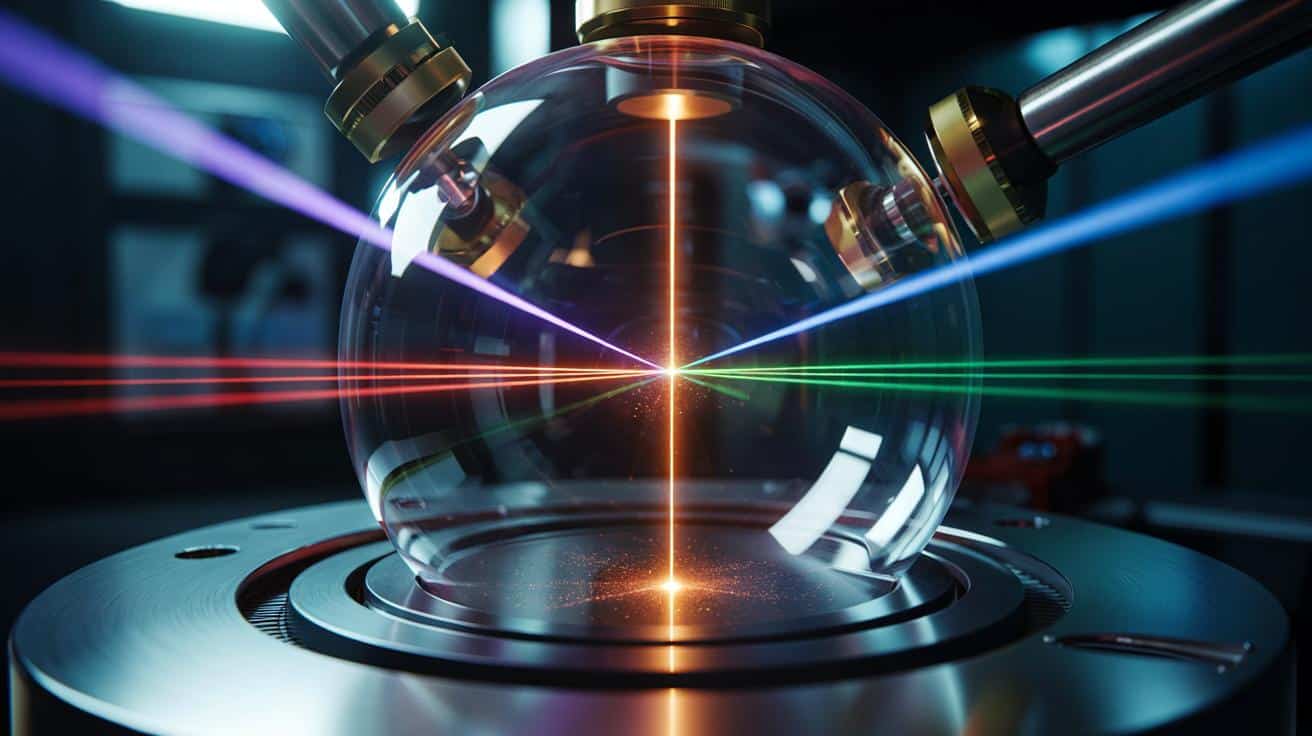
Physicists from Oxford and Lisbon have run a full 3D, time-resolved simulation showing that empty space can act like a nonlinear medium. Their model finds that three intense laser pulses make photons rebound and forge a fourth beam, echoing a long-standing prediction from quantum electrodynamics.
Classical physics treats vacuum as an absence. Quantum theory disagrees. The vacuum teems with flickering pairs of virtual electrons and positrons that borrow energy briefly and vanish. Strong electromagnetic fields can polarize those pairs. That tiny response turns “nothing” into a medium with a faint optical nonlinearity.
When three high-power laser pulses cross at the right angles and frequencies, quantum electrodynamics (QED) predicts four-wave mixing in vacuum. The combined fields nudge virtual pairs, which then mediate photon‑photon scattering. A new, phase‑matched beam should appear with a frequency and direction dictated by the input pulses.

This isn’t your normal wedding cake. The gummy bears on top can dance, their heads and arms moving thanks to injections of air through a pneumatic system, and the LED candles at the bottom are powered by batteries made out of chocolate. Such edible electronics have been proposed as a solution to electronic waste. The cake was unveiled at Expo 2025 in Osaka, Japan, on 13 April.
3Doodler, known for its 3D-printing pens, has announced a kid-friendly version of its Chef 3D pen that prints with candy instead of plastic filament. The new 3Doodler Candy, arriving later this year, swaps a power cord for a 45-minute rechargeable battery and uses gluten-free vegan isomalt capsules instead of sugar.
The candy comes out of the pen at 45 degrees Fahrenheit, so it’s safe for kids aged six and up to use.
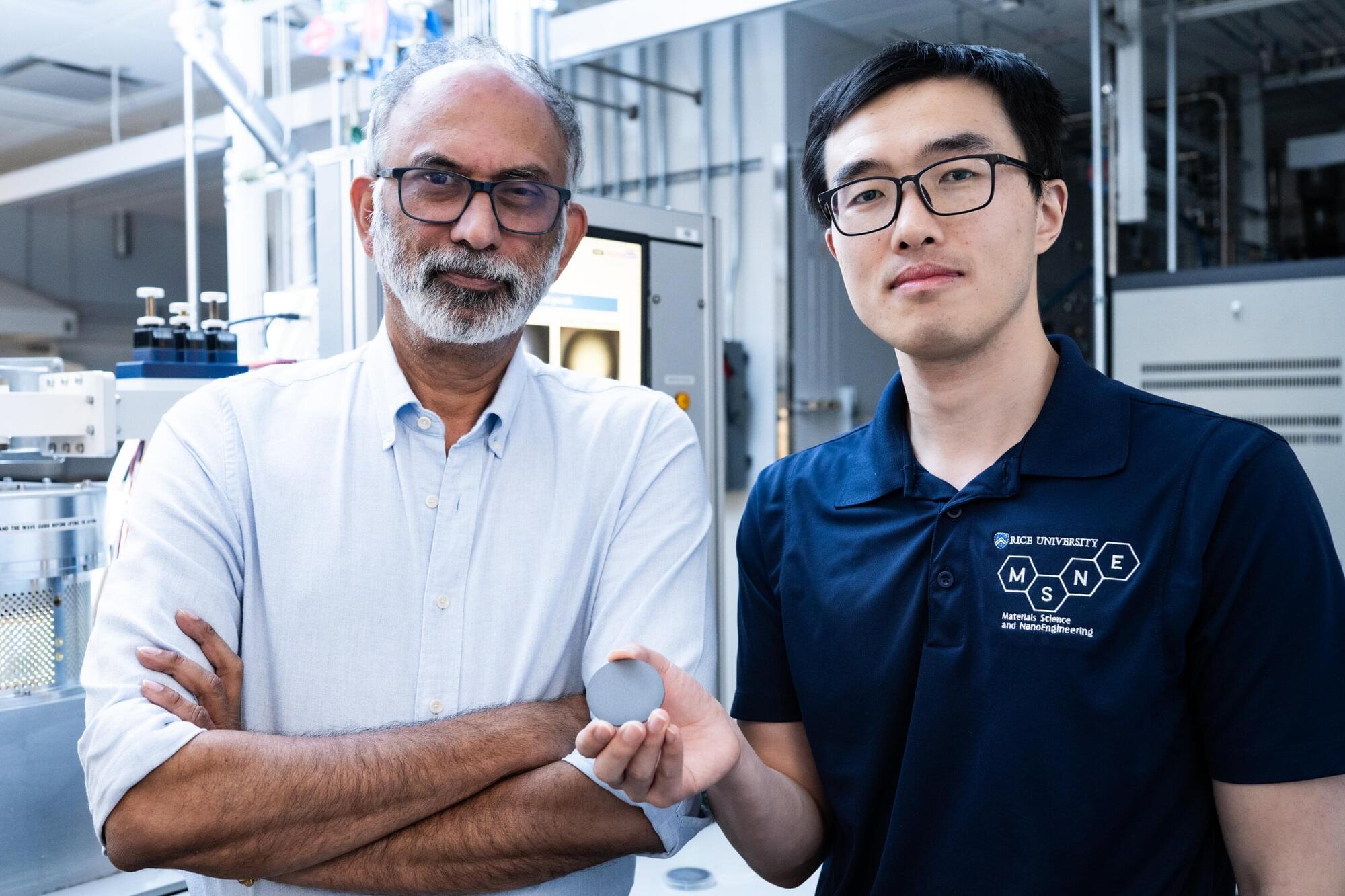
In industrial pipes, mineral deposits build up the way limescale collects inside a kettle ⎯ only on a far larger and more expensive scale. Mineral scaling is a major issue in water and energy systems, where it slows flow, strains equipment and drives up costs.
A new study by Rice University engineers shows that lab-grown diamond coatings could resolve the issue, providing an alternative to chemical additives and mechanical cleaning, both of which offer only temporary relief and carry environmental or operational downsides.
“Because of these limitations, there is growing interest in materials that can naturally resist scale formation without constant intervention,” said Xiang Zhang, assistant research professor of materials science and nanoengineering and a first author on the study alongside Rice postdoctoral researcher Yifan Zhu. “Our work addresses this urgent need by identifying a coating material that can ‘stay clean’ on its own.”

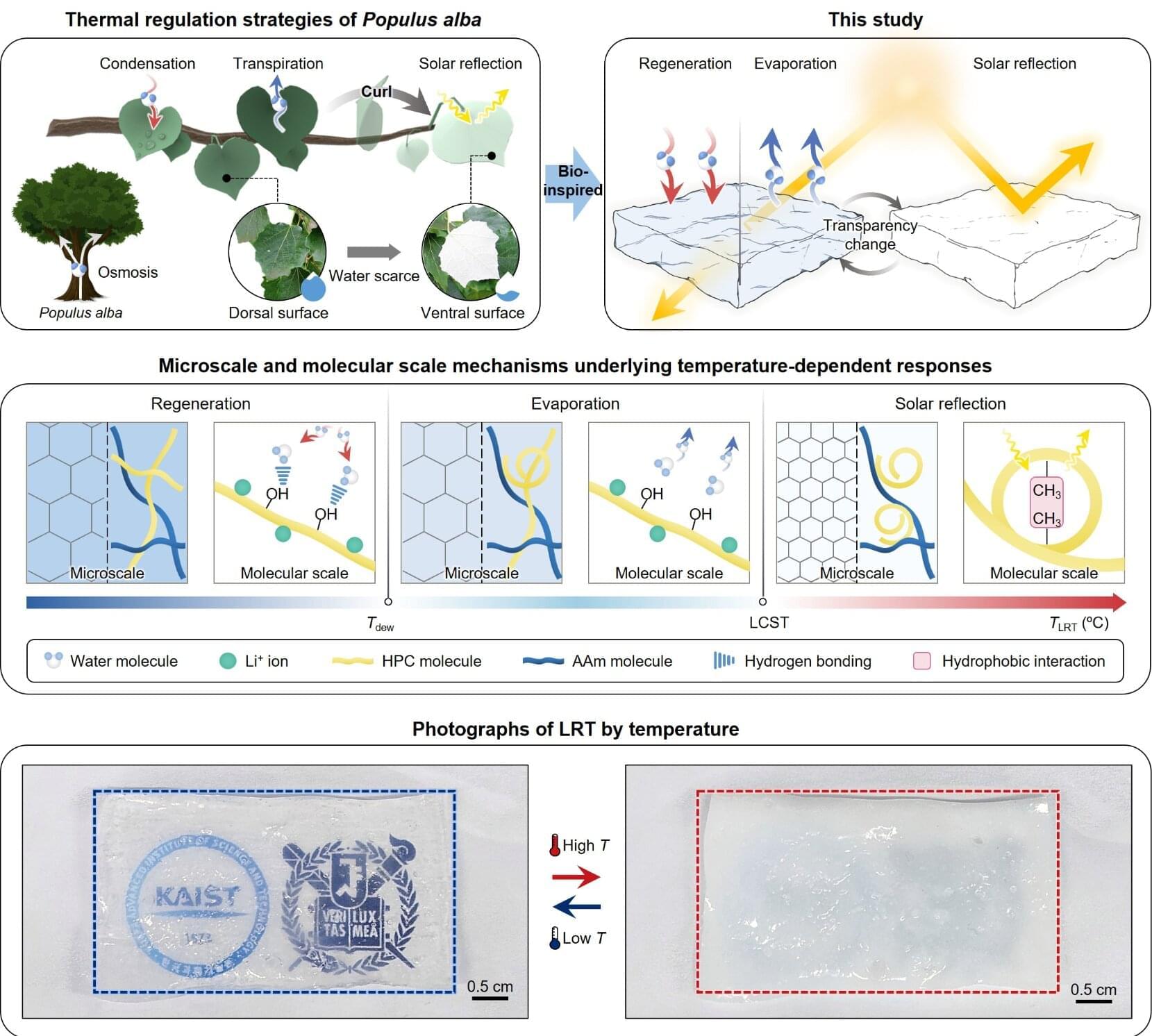
The poplar (Populus alba) has a unique survival strategy: when exposed to hot and dry conditions, it curls its leaves to expose the ventral surface, reflecting sunlight, and at night, the moisture condensed on the leaf surface releases latent heat to prevent frost damage. Plants have evolved such intricate mechanisms in response to dynamic environmental fluctuations in diurnal and seasonal temperature cycles, light intensity, and humidity, but there have been few instances of realizing such a sophisticated thermal management system with artificial materials.
Now, a KAIST research team has developed an artificial material that mimics the thermal management strategy of the poplar leaf, significantly increasing the applicability of power-free, self-regulating thermal management technology in applications such as building facades, roofs, and temporary shelters. The paper is published in the journal Advanced Materials.
The research team led by Professor Young Min Song of the School of Electrical Engineering, in collaboration with Professor Dae-Hyeong Kim’s team at Seoul National University, has developed a flexible hydrogel-based “Latent-Radiative Thermostat (LRT)” that mimics the natural heat regulation strategy of the poplar leaf.
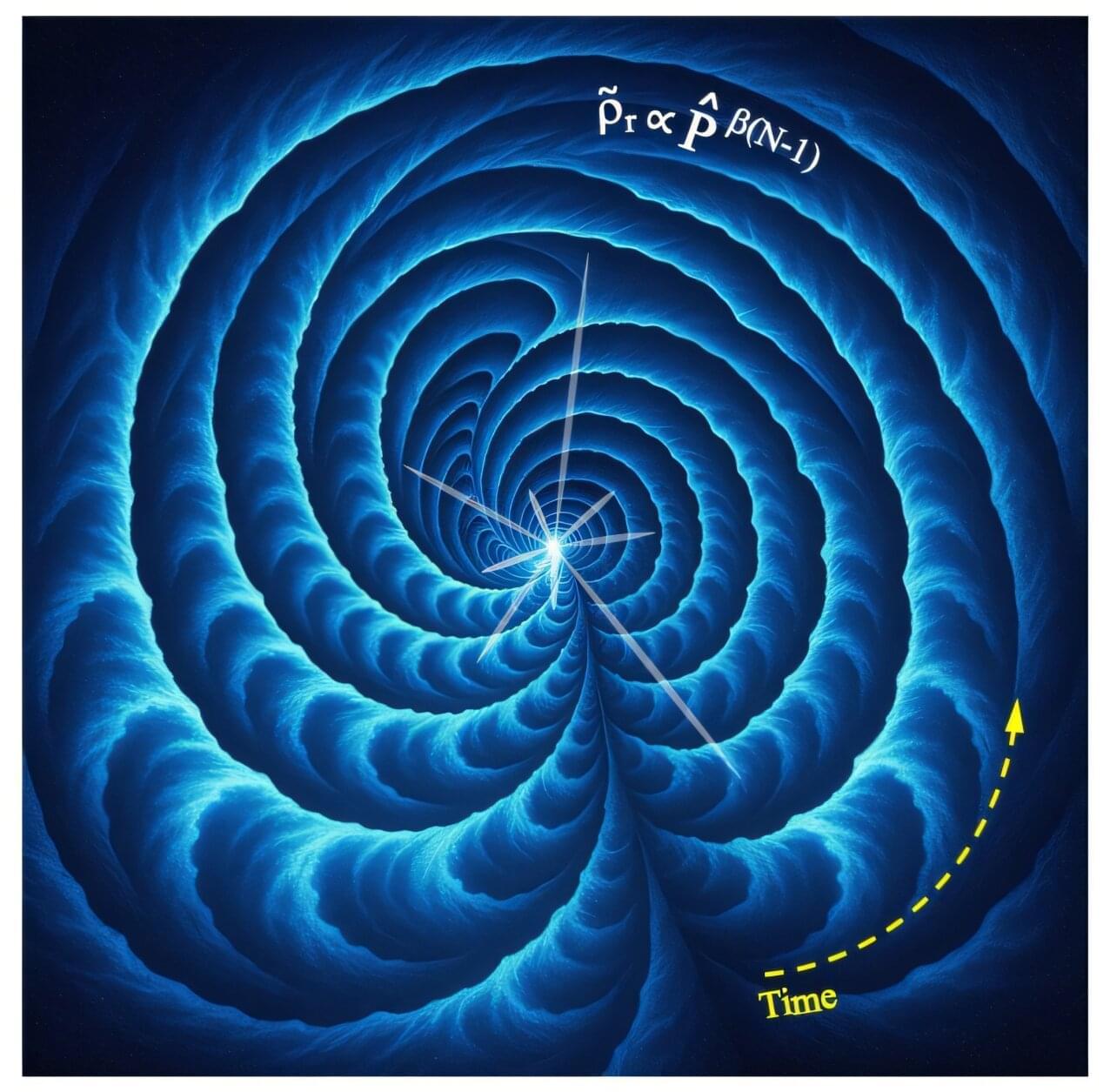
Physicists at the University of Osaka have unveiled a breakthrough theoretical framework that uncovers the hidden physical rule behind one of the most powerful compression methods in laser fusion science—the stacked-shock implosion.
While multi-shock ignition has recently proven its effectiveness in major laser facilities worldwide, this new study identifies the underlying law that governs such implosions, expressed in an elegant and compact analytic form.
A team led by Professor Masakatsu Murakami has developed a framework called Stacked Converging Shocks (SCS), which extends the classical Guderley solution—a 1942 cornerstone of implosion theory—into the modern high-energy-density regime.
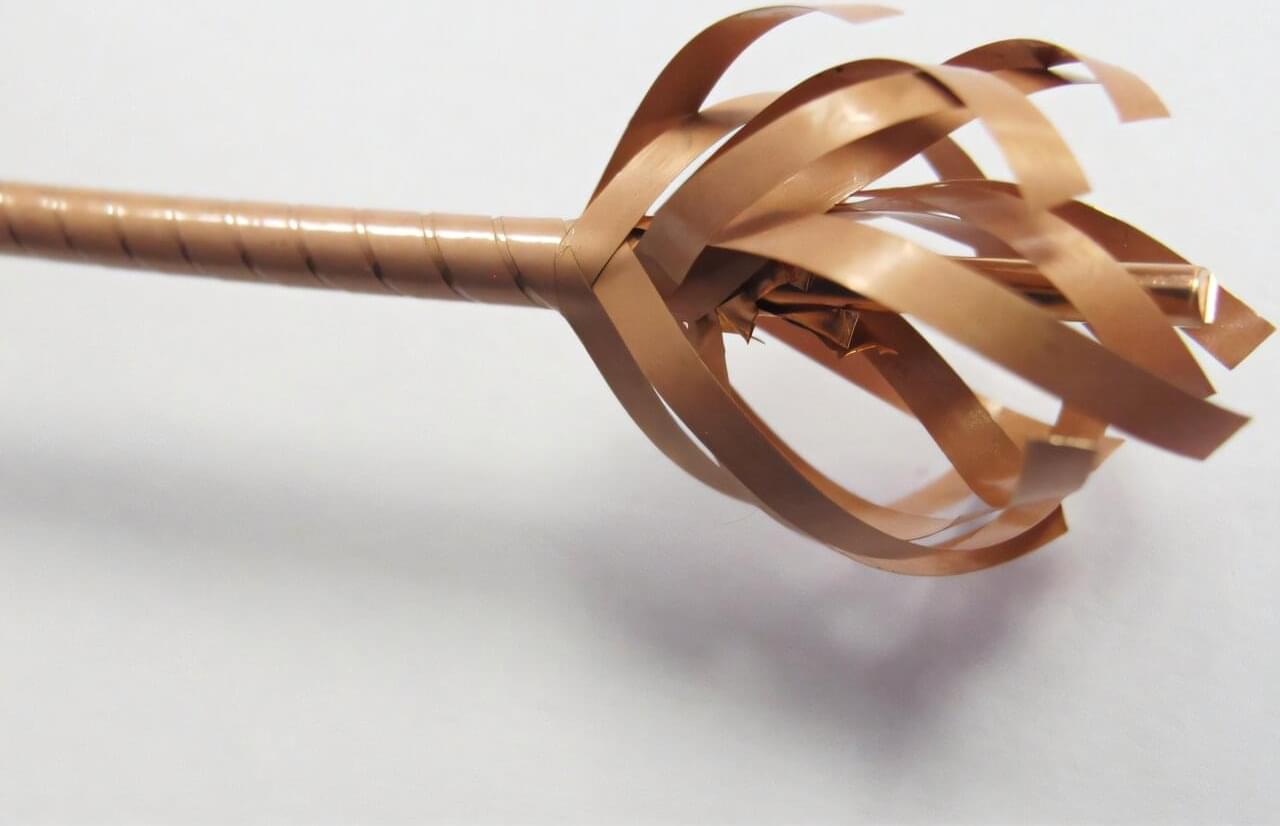
When current flows through a wire, it doesn’t always have a perfect path. Tiny defects within the wire mean current must travel a more circuitous route, a problem for engineers and manufacturers seeking reliable equipment.
Through a partnership with industry, researchers at the FAMU-FSU College of Engineering and Florida State University’s Center for Advanced Power Systems and the National High Magnetic Field Laboratory have supported the development of a design that uses multiple strands of superconducting tape to create a cable, minimizing the chance of failure from defective spots within a wire. When current encounters a defect in one wire, it jumps to a neighboring wire to continue moving.
The research, which is published in Superconductor Science and Technology, helps to solve engineering and manufacturing challenges for manufacturers and could lead to more efficient and less expensive wires for electric motors and many other superconducting coil applications.